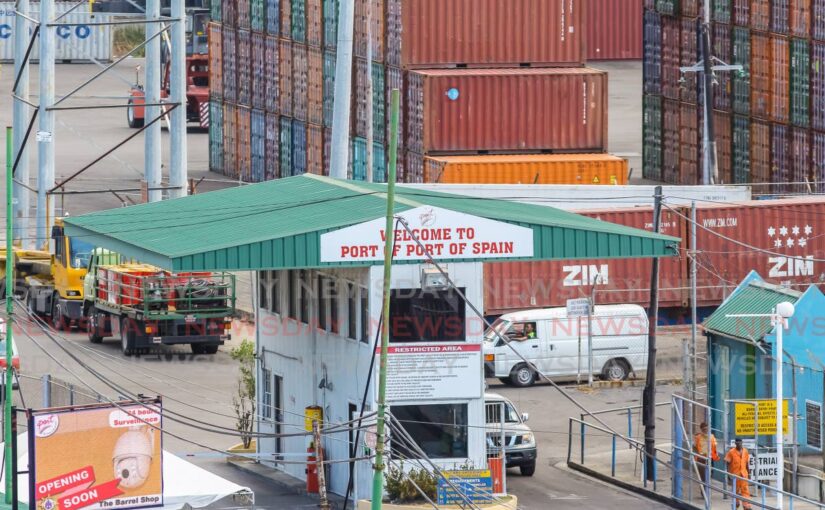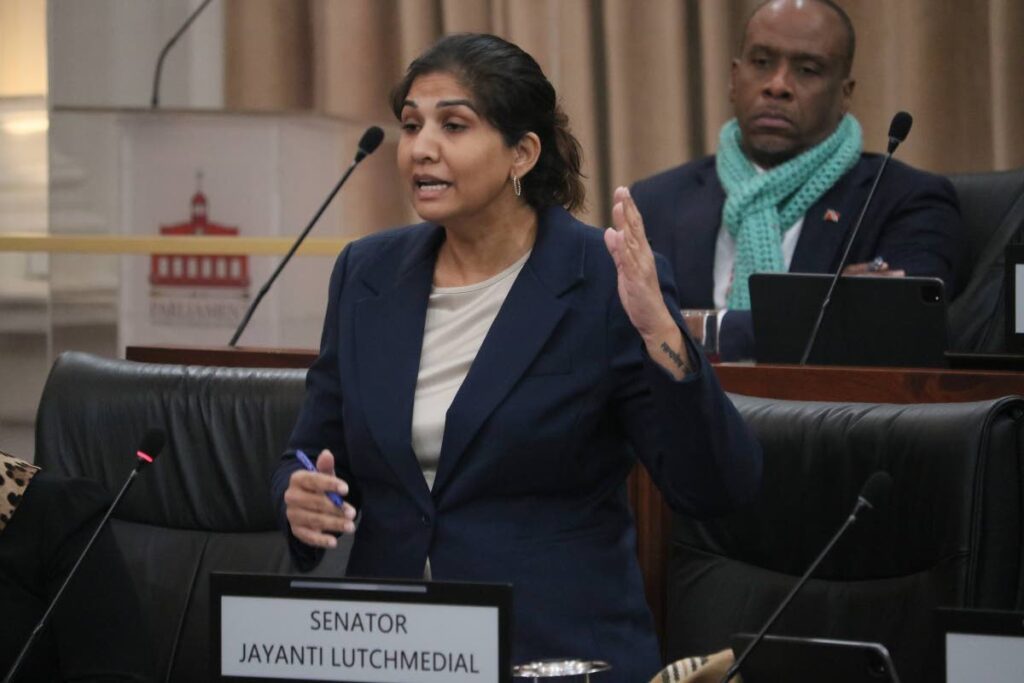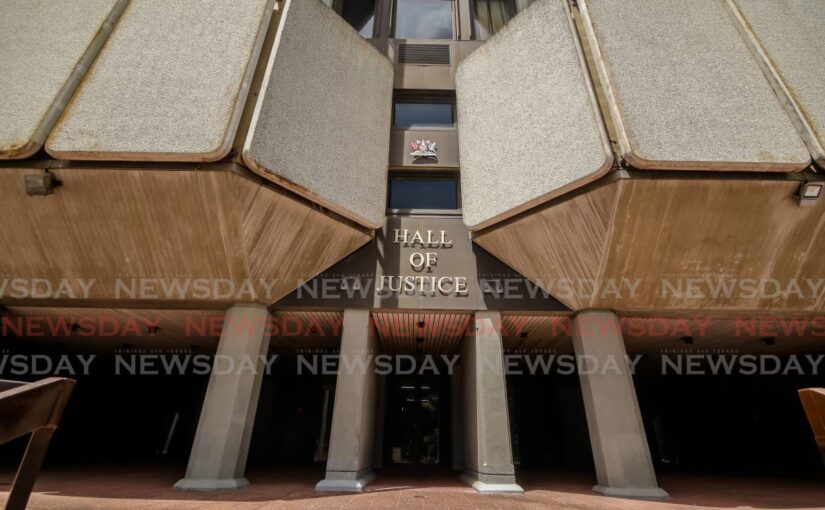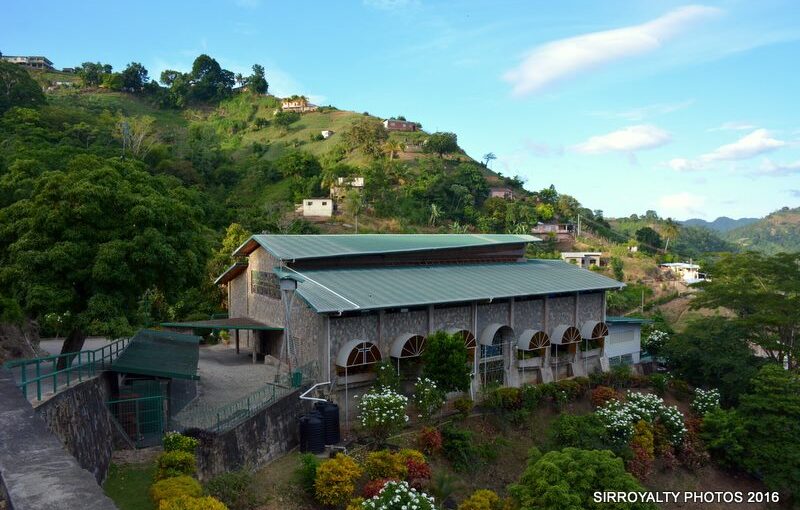

The entrance to the Port of Port of Spain, Dock Road, Port of Spain. FILE PHOTO/JEFF MAYERS -
THE 2015 memorandum of agreement would cost the Port Authority of TT (PATT) $222.5 million in retroactive payments to workers with an annual recurrent increase of $22.38 million.
This is according to the authority in court documents in support of an emergency injunction granted on November 19 by the Industrial Court mandating striking port workers to resume duties immediately.
The authority said it was forced to approach the court because of an impasse with the Seamen and Waterfront Workers Trade Union (SWWTU), the majority union for port workers.
At the heart of the dispute is the union's demand for the enforcement of a 2015 memorandum of agreement (MOA) covering the 2014–2017 period, which the PATT argues is financially untenable.
The government has refused to accept the agreement because the Chief Personnel Officer (CPO) was not involved in the negotiations.
>
Implementing the 2015 MOA would result in retroactive payments of $222.5 million to workers and an annual recurrent increase of $22.38 million, according to the authority.
In contrast, guidelines provided by the Chief Personnel Officer (CPO) to PATT suggest more modest increases for the 2016–2019 period, including a two per cent wage hike for two intervals, with no cost-of-living allowance consolidation.
According to PATT’s evidence, with the CPO’s guidelines, the financial impact of the implementing increases for August 2017 to July 2023, would be $22.8 million in retroactive payments and $8.4 million in recurrent annual increases.
The 2015 MOA was signed on August 28, 2015. In its application, the PATT said the industrial action, which began in early October, severely disrupted cargo operations, causing estimated losses of $17 million and threatening the stability of the nation’s supply chain.
The port workers’ strike, viewed by PATT as an illegal industrial action, escalated after prolonged negotiations failed to resolve. In October, workers’ absence forced the authority to deploy Defence Force officers to handle cargo from a roll-on/roll-off vessel, but delays and disruptions continued.
PATT said the economic impact of the workers’ actions had been far-reaching with two manufacturers reporting significant losses from missed export deadlines, while warning that other businesses faced supply shortages at a critical time for holiday sales.
One vessel has already announced its intent to bypass the Port of Spain port, further endangering the authority’s reputation as a Caribbean logistics hub, the documents said.“The failure to meet export deadline has jepoardised contractual obligations and diminished TT’s competitiveness in global markets.
This comes at a critical time in our economy when issues touching and concerning foreign exchange are burning topics," the application said. .
The PATT said negotiations with the SWWTU had repeatedly stalled. The union rejected a PATT counteroffer in November and continued to insist on a 12 per cent salary increase outlined in the 2015 MOA. The authority claims such demands exceed its financial capabilities and contravene the CPO’s directives.
>
The PATT also cited its attempts to engage in good-faith negotiations. It warned, however, that ongoing disruptions could have permanently affected the nation’s supply chain, commerce, and global competitiveness.
The authority said the 2015 MOA could not be registered and this was told to the union in June 2023. The PATT said the Ministry of Labour wrote to the union on an application to have the 2015 MOA registered and advised that it could not as the President of the Industrial Court advised that the practice of registering partial agreements should be discontinued.
On Tuesday, SWWTU president Michael Annisette told the media it was unfortunate the authority decided to seek an injunction against port workers.
“They took this route rather than meeting and treating with the union on the myriad of issues affecting dock workers. The SWWTU will, however, respect the court's judgment."
PATT chairman Lyle Alexander said, "We never wanted to take this action, but we felt we had no choice.
"The workers have taken steps that threaten the port's operations and are affecting livelihoods. We have a duty to protect the interests of our stakeholders and the country."
The authority in a statement said the port’s operations account for approximately 59 per cent of the country's container volumes.
"Prolonged disruptions could have far-reaching consequences for the economy and essential supply chains.
"The Port Authority remains committed to dialogue to resolve the wage negotiation impasse and restore normalcy at the port."
>
The authority said the current situation was unsustainable and detrimental to national and regional interests.
Last week, former transport minister Stephen Cadiz criticised the government for failing to follow through on the wage increase agreed upon in 2015.
Commenting on the latest in the impasse between the government and port workers was Chaguanas West MP Dinesh Rambally.
He said as a former Industrial Court judge, having a five-member panel hear the PATT’s injunction application was “a matter of high priority.” The court clearly understands the seriousness of this matter and its potential impact not only upon the interests of the persons immediately concerned but the nation as a whole.
He said the disruptions were not just a labour issue. “They are a national issue. Thousands of small businesses and livelihoods across the country depend on smooth operations at the port, especially during this critical holiday season. Prolonged instability will have ripple effects, threatening supply chains and economic recovery.”
He urged PATT and the SWWTU to engage in court-mediated discussions.
“The Industrial Court has fiercely independent and expert judges with the authority to mediate, and this process could pave the way for a fair, mutually beneficial resolution. Dialogue is always preferable to protracted conflict, especially when the stakes are so high for businesses, workers, and citizens alike.
The country cannot afford further delays.”
In stark contrast, Couva South MP Rudranath Indarsingh described PATT’s move for the injunction as “high-handed and undemocratic.” He called on the government to honour the 12 per cent salary increase for port workers.
>





